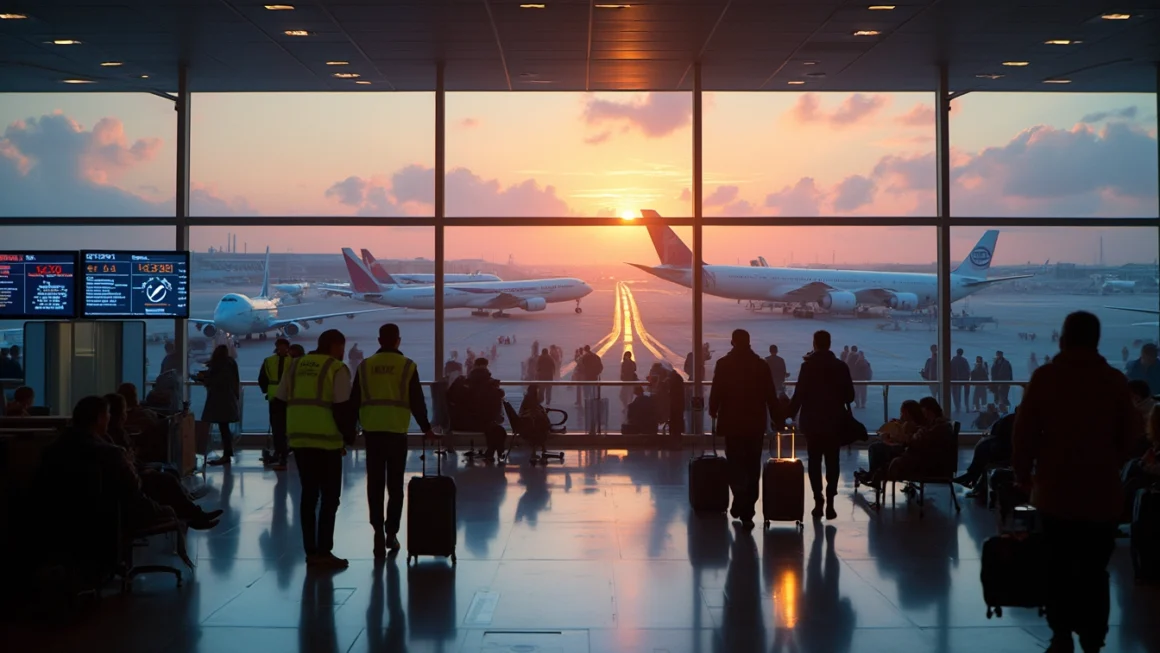The Controversial Plan to Reduce Heathrow’s Night Flights
Table of Contents
In a move that has sparked intense debate, Heathrow Airport has proposed a significant reduction in night flights. This plan, aimed at addressing noise pollution concerns, could have far-reaching implications for both travelers and the aviation industry.
Understanding the Proposal
Heathrow’s proposal involves cutting the number of night flights by a third. This would mean reducing the current limit of 16 flights between 04:30 and 06:00 to just 11. The airport argues that this change would benefit local residents by reducing noise disturbances during early morning hours.
However, the plan comes with a trade-off. To compensate for the reduced night flights, Heathrow wants to allow more early morning landings, potentially increasing the number of flights between 06:00 and 07:00.
The Impact on Airlines and Passengers
This proposal has significant implications for airlines and passengers alike. Airlines operating long-haul flights from Asia and other distant regions may need to adjust their schedules, potentially affecting their competitiveness and operational efficiency.
For passengers, the changes could mean fewer options for early morning arrivals, which are often preferred by business travelers. On the other hand, those living near the airport might welcome the prospect of quieter nights.
Environmental Considerations
While the primary focus of this proposal is noise reduction, it also touches on broader environmental concerns. Reducing night flights could potentially lead to a decrease in overall emissions, aligning with growing pressure on the aviation industry to address its environmental impact.
Interestingly, this discussion about flight scheduling and environmental impact brings to mind the broader topic of business process automation. Many industries, including aviation, are looking at ways to optimize their operations for both efficiency and sustainability. For those interested in exploring how automation can streamline business processes, Make.com offers innovative solutions that could be applied to various sectors, including transportation and logistics.
The Consultation Process
Heathrow’s proposal is currently under public consultation, set to run until mid-February. This process allows various stakeholders, including local residents, airlines, and industry bodies, to voice their opinions and concerns.
The consultation will cover not just the night flight reduction but also other aspects of Heathrow’s operations, including plans for a potential third runway. This comprehensive approach ensures that all related issues are considered in tandem.
Balancing Act: Economic vs. Environmental Concerns
At the heart of this debate lies the classic conflict between economic interests and environmental/quality of life concerns. Heathrow, as one of the world’s busiest airports, plays a crucial role in the UK’s economy. Any changes to its operations can have significant economic ripple effects.
On the other hand, the growing awareness of environmental issues and the importance of community well-being cannot be ignored. The challenge lies in finding a balance that satisfies both economic needs and environmental responsibilities.
The Broader Context of Aviation Regulation
Heathrow’s proposal comes at a time when the aviation industry is under increasing scrutiny regarding its environmental impact. Governments and regulatory bodies worldwide are considering various measures to make air travel more sustainable.
This proposal could set a precedent for other major airports, potentially leading to a broader shift in how night flights are managed globally. It’s a development that industry watchers and environmental advocates will be following closely.
Looking Ahead: The Future of Night Flights
As the consultation process unfolds, it will be interesting to see how different stakeholders respond to Heathrow’s proposal. The outcome could have far-reaching implications not just for Heathrow, but for the broader conversation about balancing aviation needs with environmental and community concerns.
Whether this proposal is implemented as is, modified, or rejected, it marks an important moment in the ongoing evolution of air travel regulations. It highlights the complex interplay between economic interests, environmental concerns, and community well-being that airports worldwide must navigate.
Conclusion
Heathrow’s proposal to reduce night flights represents a significant shift in airport operations. While aimed at addressing noise pollution, it opens up a broader discussion about the future of aviation and its impact on communities and the environment.
As the consultation process continues, all eyes will be on Heathrow to see how it balances the diverse needs of airlines, passengers, local residents, and environmental concerns. The outcome of this proposal could set important precedents for airport operations worldwide, potentially reshaping the landscape of night flights and airport noise management for years to come.




